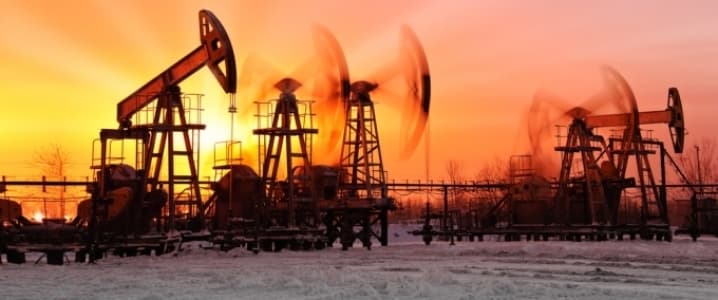At the beginning of July Gabon joined the Organisation of Petroleum Exporting Countries (OPEC) after an absence of more than two decades.
Gabonese authorities are looking for enhanced coordination with other global oil producers to alleviate some of the pressure of low energy prices and to help cultivate an environment more conducive to expanding domestic production.
Back into the fold
The country had asked to rejoin OPEC earlier this year, after leaving the organisation in 1994 due to an inability to pay its annual membership dues. At the time, the country requested that its contributions be adjusted in line with its production levels; however, the group’s larger members rebuffed this proposal.
While Gabon is again the cartel’s smallest producer – contributing just 0.3 percent of the global oil supply, amidst OPEC’s combined 40 percent – officials are hoping the benefits gained from closer international coordination, as well as technical and other assistance, will outweigh costs in the long run.
The move brings the total number of countries in OPEC to 14, following Indonesia’s re-admission in January, and will allow Gabon to better coordinate and strengthen ties with other members that are also dealing with the economic fallout of weaker energy receipts.
Gabon has already trimmed its budget twice in response to lower crude sales, but its economy remains highly dependent on oil, accounting for more than 80 percent of exports, two-thirds of state revenue and 43 percent of GDP.
Coordinated response to energy headwinds
The country will take part in the next OPEC meeting, which will be held alongside an energy conference in Algeria in late September.
The meeting is expected to address the ongoing supply glut. OECD crude stockpiles surpassed the 3.1bn barrel mark in July, as supply has continued to increase. Global demand growth, meanwhile, is projected to slow at a faster rate than initially forecast by the U.S. Energy Information Administration, for a gain of just 1.3m barrels per day (bpd) this year. Related: How Long Will OPEC Hot Air Continue To Fuel Oil Prices
Any concerted effort to trim supply could help rebalance the market, giving producers greater fiscal breathing room after prices neared breakeven levels over the last 18 months.
At present, Brent crude is priced slightly above the $40 per barrel threshold laid out in Gabon’s 2016 budget, trading at around $48 in early September.
“What is important for us is how we can work with OPEC towards fighting against the situation of oil prices going down,” Ali Bongo Ondimba, the incumbent president, told international media in mid-April. “It is just important that all the members be going in the same direction.”
Significantly, Iran – which has ramped up its production to 3.6m bpd since sanctions were lifted in January – has pledged to attend the Algeria talks. Iran’s continued commitment to increase its output to pre-sanctions levels of around 4m bpd has been widely seen as a stumbling block to collective action to defend flagging energy prices.
Gabonese production prospects
Lower oil prices have coincided with a broader decline in Gabonese production due to maturing oil fields and a lack of new projects.
The country produced around 219,000 bpd of crude last year, down from 222,000 in 2014 and a peak of 370,000 bpd in 1997, though output has picked up somewhat in the first six months of this year, averaging 230,000 over the second quarter, according to OPEC figures.
Gabonese authorities are looking to stabilize production at around 250,000 bpd in the short term and double it by 2025, relying on increased output from offshore blocks. According to official estimates, without new discoveries, production is expected to ease to 100,000 bpd by 2024.
These goals are seen as ambitious given the high exploration costs associated with the country’s offshore formations.
International oil majors Total, Shell and Eni all announced offshore discoveries in mid-2013; however, many of these blocks are in deep or ultra-deep waters, which in turn necessitates high levels of capital spending before commercial production can begin.
Even with limited production, demand for Gabonese crude remains high. The country profits from a relatively light crude that is low in sulphur, which allows refiners to produce a wider range of products, such as liquefied petroleum gas, petrol and fuel oil.
More Top Reads From Oilprice.com:
- Gasoline Demand Set To Collapse
- Is The EIA Wrong On Texas Oil Production?
- Is The Eagle Ford About To Stage A Comeback?


















